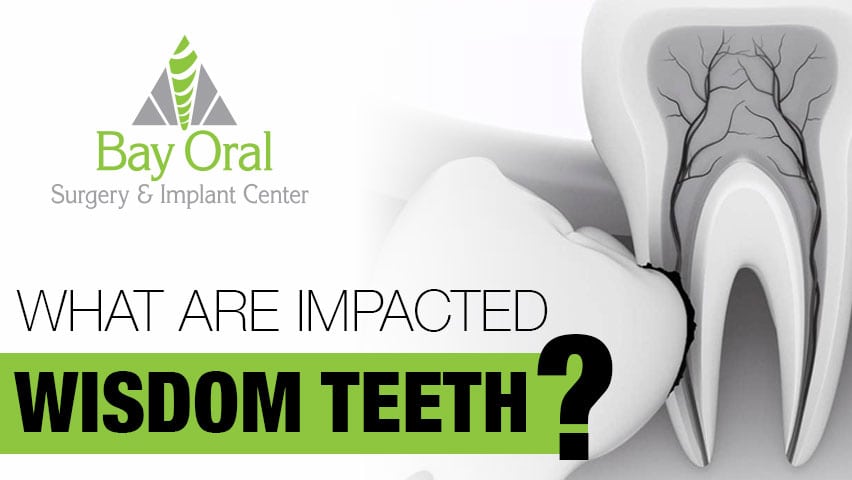
What Does it Mean When Your Teeth are Impacted?
Impacted teeth is a term used to describe when a tooth doesn’t come in or only emerges partially. This can happen for a number of reasons, but most commonly happens with your third molars or wisdom teeth. Your jaw might be too small, or overcrowded with no room for new teeth to break out. Teeth can also become tilted, twisted or disturbed as they attempt to emerge.
Symptoms of Impacted Teeth
Most cases of impacted teeth can be recognized by x-rays during regular dental visits before they ever even become a problem.
Other symptoms of tooth impaction include:
- Swelling gums in the back of your mouth
- Bleeding gums
- Difficulty and pain opening your jaw
- Bad breath and bad taste in your mouth
- Painful chewing and biting
- Headaches
- Swollen neck and shoulder glands
Are you experiencing the painful symptoms of wisdom tooth impaction? Check out our previous article on home remedies for treating wisdom tooth pain.
Types of Impacted Teeth
There are four types of impacted teeth that include horizontal impaction, vertical impaction, angular impaction, and partial eruption.

Horizontal Impaction is the most painful type of impaction as the tooth or teeth grow in sideways, fully beneath the gums. The tooth will move and grow horizontally, as the name implies, pushing forward on the molar in front of it. This type of impaction is diagnosed with x-ray and will likely cause damage to surrounding teeth and unbearable pain if it isn’t taken out. This extraction should be done under IV sedation or general anesthesia.
Vertical Impaction happens when the tooth is growing and erupting vertically but may be too close and rubbing against or pushing, from beneath, the molar next to it. It’s very likely that this type of impaction will erupt normally and most cases don’t require surgery to remove them.
Angular Impaction can happen one of two ways. Distal Impaction happens when the tooth is angled towards the back of the mouth. This is the most uncommon type of tooth impaction and is left up to the dentist or surgeon to determine whether it needs to be removed. That decision is mostly based on the angle and whether the tooth will eventually grow to impact the jaw bone.
Mesial Impaction is the opposite of Distal both that the tooth angles forward towards the front of the mouth, and that it is the most common type of tooth impactions. Mesial Impaction commonly accounts for Partial Eruptions as the back of the tooth erupts and the front is pressed against the anterior molar. This will typically be monitored to determine if extraction is necessary.
While all impacted teeth can cause discomfort, not all types of teeth impactions require immediate surgery. We recommend that you don’t wait until the pain becomes so intense that immediate emergency surgery is the only option. Schedule your appointment today with the experienced and knowledgeable surgeons at Bay Oral Surgery & Implant Center.
